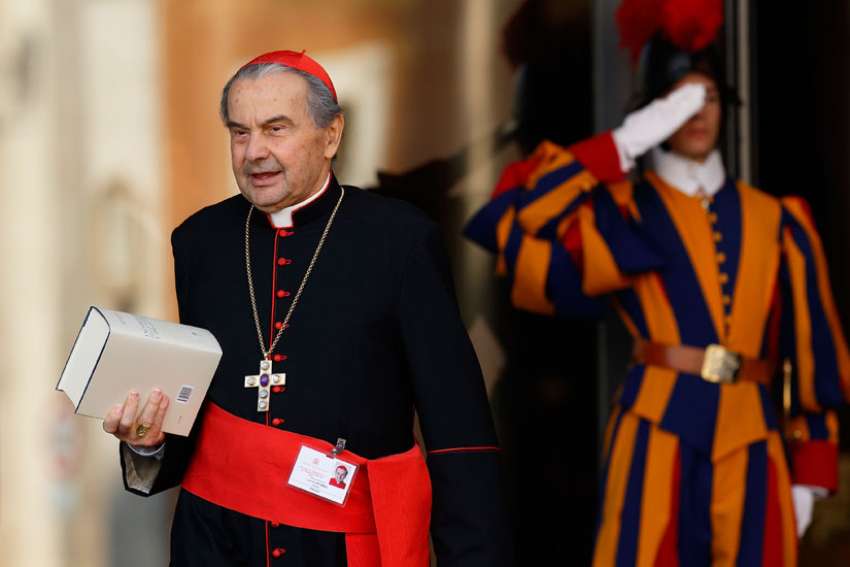The letter, sent privately to the Pope Sept. 19 with dubia, or doubts, “were long reflected on, for months … for my part, they were also the subject of lengthy prayer before the Most Blessed Sacrament,” Cardinal Carlo Caffarra explained to the Italian newspaper Il Foglio in an interview published Jan. 14.
The four cardinals believed themselves obliged to submit the dubia because of their role in counselling the Pope and because of “the fact — which only a blind man could deny — that in the Church there exists great confusion, uncertainty, insecurity caused by some paragraphs of Amoris Laetitia.”
“In these months, in terms of fundamental questions regarding the sacramental economy (marriage, confession, and the Eucharist) and the Christian life, some bishops have said A, some others have said the contrary of A, with the intention of interpreting well the same text," said Caffarra, the emeritus Archbishop of Bologna and former head of the Pontifical John Paul II Institute for Studies on Marriage and Family.
Caffarra said that “the way out of this conflict of interpretations was to have recourse to fundamental theological criteria of interpretation, the use of which I think can reasonably demonstrate that Amoris Laetitia does not contradict Familiaris consortio.”
And yet, he said, “we saw that this epistemological model would not suffice. The contrast between the two interpretations continued,” and so the only way to address the question was to ask the author of Amoris Laetitia to clarify it.
Out of respect for the Pope, the four cardinals chose to submit their dubia privately, deciding to make them public two months later only “when we had certainty that the Holy Father would not respond."
"We interpreted his silence as authorization to continue the theological discussion," he said. "And, moreover, the problem profoundly involves both the magisterium of the bishops and the life of the faithful.”
The cardinal noted that criticism for their actions had been growing, “as though we comported ourselves like the dogs who did not bark,” alluding to Isaiah 56:10, in which the prophet says the Lord's watchmen “are all mute dogs, they cannot bark; dreaming, lying down, loving to slumber.”
He also added that division in the Church “is the cause of the letter, not its effect.”
Caffarra pointed to the example of a pastor who had written him saying that “in spiritual direction and in confession I don't know what to say” when confronted by penitents who wish to receive Communion despite their adulterous situation, and cite the Pope in their defence.
“The situation of many pastors of souls, I mean above all parish priests, is this,” the cardinal continued: “There is on their shoulders a burden too hard to bear.”
Caffarra charged that speaking of too great a division between doctrine and pastoral practice is a grave problem.
“To think pastoral practice is not founded and rooted in doctrine signifies that the foundation and root of pastoral practice is arbitrary. A Church which pays little attention to doctrine is not a more pastoral Church, but a more ignorant Church.”
He continued, “When I hear it said that this is only a pastoral change, and not a doctrinal one, or that the commandment prohibiting adultery is a purely positive law which can be changed (and I think no righteous person can think this), this signifies that, yes, a triangle has generally three sides, but that it is possible to construct one with four sides. That is, I say, an absurdity.”
The dubia, he noted, were meant to clarify whether or not Amoris Laetitia is a development of the preceding Magisterium, or a contradiction of it – as both interpretations have been taken by some bishops.
“Has Amoris Laetitia taught that, given certain circumstances and after going through a certain process, the [divorced-and-remarried] faithful could receive the Eucharist without resolving to live in continence? There are bishops who have taught that this is possible,” the cardinal said. “By a simple deduction of logic, one must therefore also teach that adultery is not in and of itself evil.”
(Story from the Catholic News Agency)

